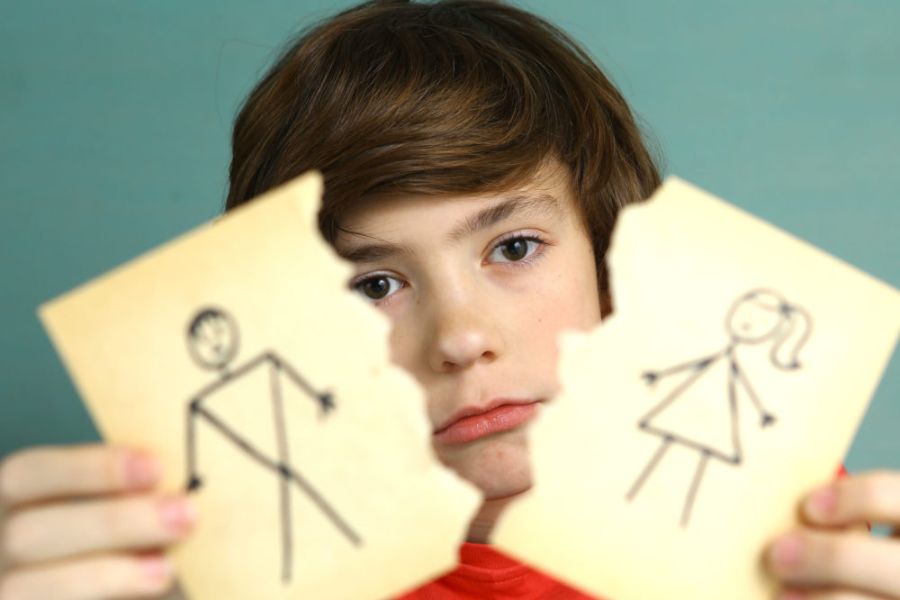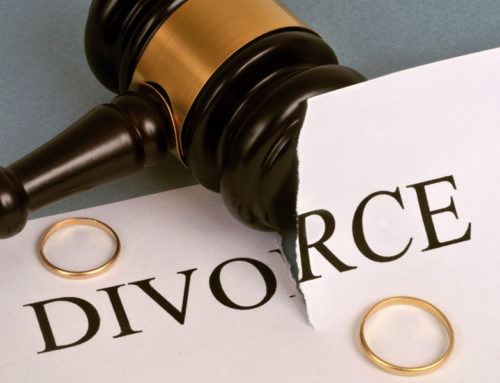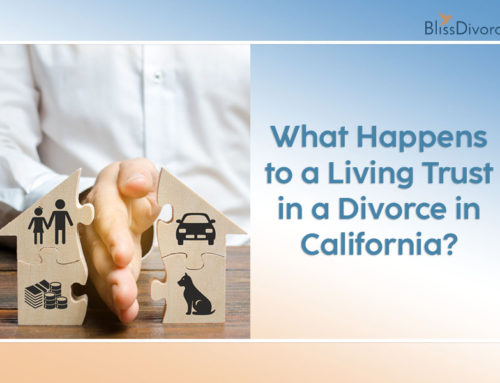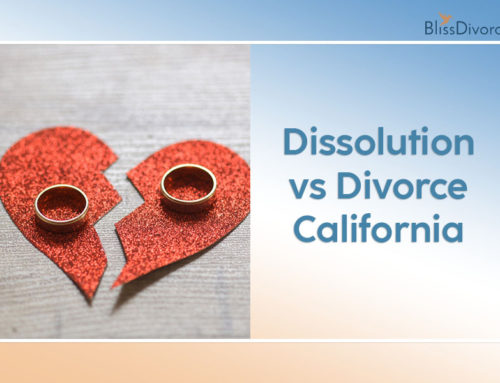Arguments can occur in every family, but the escalation of these fights can cause long-lasting trauma to children. On top of that, if the parents cannot resolve their problems, sometimes the marriage can end in divorce.
Although this may be a sense of relief and a way to find peace for parents, children can find it very difficult to accept. Even if parents share joint custody and maintain a positive relationship, children can mourn the loss of the family unit they have become accustomed to.
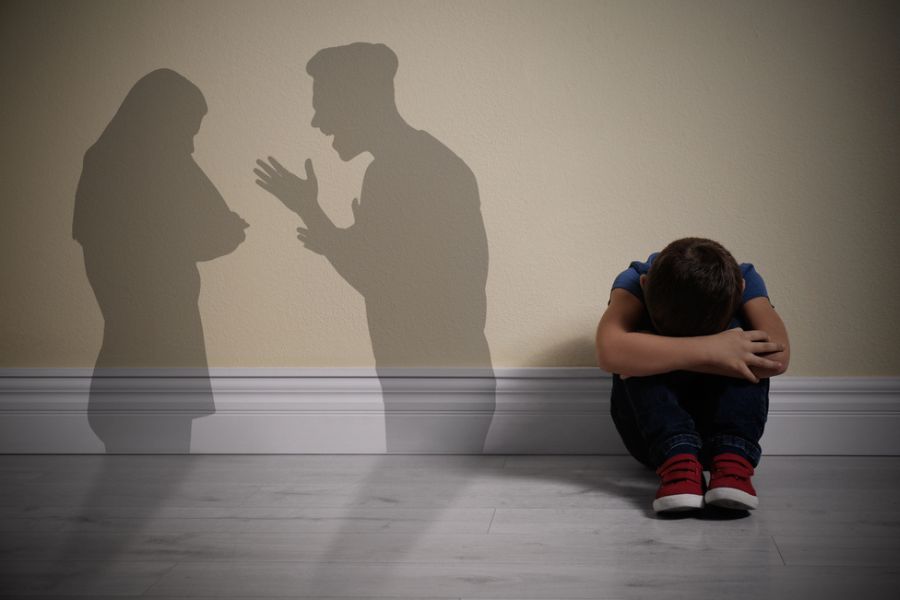
Source: shutterstock.com / Photo Contributor: New Africa
Long-Term Psychological Effects of Divorce on Children and How to Prevent Them
During divorce proceeding the focus is usually on the issues between the two parents. This can sometimes lead to children’s needs being neglected. Even when the parents try to put their children first they may be unaware of the psychological effects on children that their divorce can cause. Luckily, there are ways in which you can prevent this from happening.
Before anything else, it is important to get an idea of your child’s reaction to the divorce, depending on their age and cognitive abilities. Some children may not have an instant reaction, whereas other children’s pain can be clearly seen in their eyes immediately.
Just like adults, children cope with trauma in different ways. However, their abilities for rational thinking may not be developed just yet. That is the reason why some children start to act out and change their behaviors after their parents get a divorce.
A way of preventing lasting psychological effects on children from divorce is by avoiding putting them in the middle. Do not ask them to take sides or share with them your criticisms of your spouse. Also, divorce mediation can be a good solution to resolve the issues with your partner in a calm manner and save your children from trauma.
How Children of Differing Age Groups React to Divorce
Children of different ages can react differently to concepts such as divorce. According to a study about divorce in California, some of them may not even understand what this term means and what will follow after the two parents separate.
Preschool
Young children such as toddlers and preschoolers may have no idea why their parents are fighting or why they stopped living together. They are used to the care of both their mother and father, which can cause confusion when they are separated.
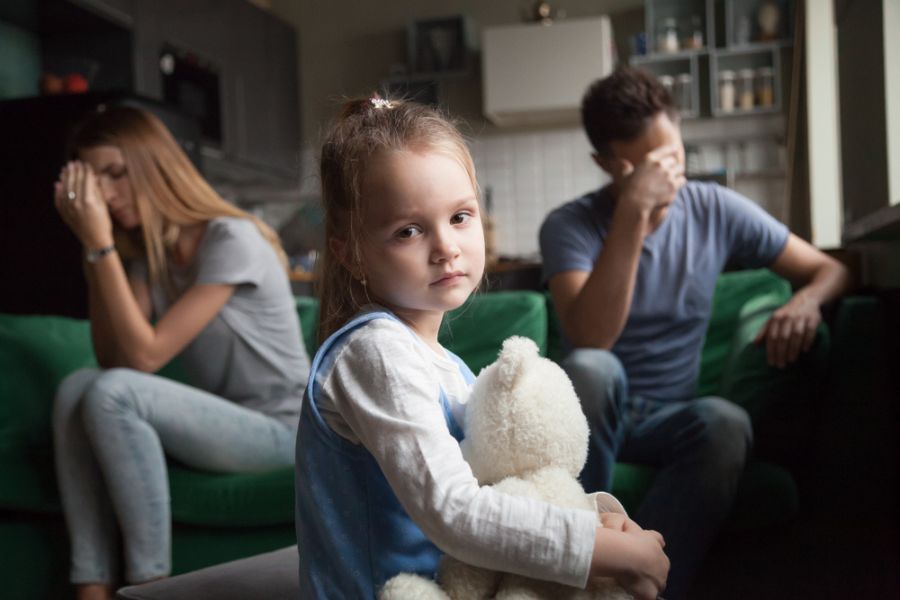
Source: shutterstock.com / Photo Contributor: fizkes
Primary school
Once children start going to school, that’s when they develop a better understanding of their surroundings. They are fully aware that they have two homes now and their parents don’t live together.
Sadness is a prevalent feeling for this age group, sometimes even believing that they are not loved by one or both parents any longer.
Middle school
This age group is proven to be affected by parental divorce in the worst way. Middle schoolers often believe that they are the reason for the separation of their parents.
They sometimes feel guilty and overwhelmed, thinking that if they didn’t exist, their parents wouldn’t have lost their love for each other.
Teenagers
The psychological impact of divorce on children during their teenage years can be very damaging to their future. They might feel that every marriage ends in a divorce, regardless of how much two people love one another. It may also cause them to fear getting into romantic relationships later in life.
Young Adults
Even though people above the age of 18 are legally adults, they will always be their parents’ children. They understand the situation but still feel anger towards their parents for deciding to split up and ruin the family harmony.
Emotional Effects of Divorce on Children
Dealing with your parents’ divorce is difficult regardless of your age and the circumstances that led to the separation. Children may struggle with hiding or showing their emotions for a while because of these types of family issues.
Stress
Divorce can be highly stressful for children. Apart from listening to the constant bickering between the two parents, they also have to deal with broken family dynamics. The stress caused by the settlement agreement can affect many aspects of children’s lives.
Effect on academic performance
Due to the stress caused by their parents getting a divorce, children often find themselves struggling to focus on their school work. This can have a negative impact on their academic performance, and they might get lower grades than usual.
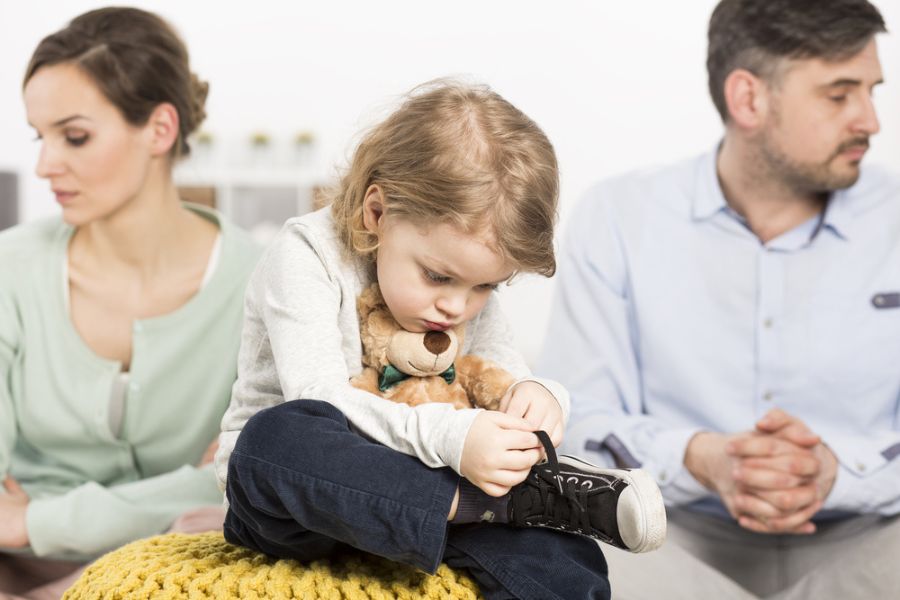
Source: shutterstock.com / Photo Contributor: Ground Picture
Anxiety
A psychological effect on children by ongoing divorce proceedings can develop anxiety. This condition is difficult to deal with on their own, and they might require professional help in order to calm their nerves down.
Depression
Anxiety for some children can also lead to depression. Children might find themselves thinking negative thoughts constantly and losing the sense of purpose in life because their parents decided to terminate their marriage.
Anger
A common emotion many children face after their parents get a divorce is anger. Parents going through a divorce have reported that their kids develop aggression and violence toward themselves and other people as soon as they discover their family is falling apart.
Impulsivity
Their reaction toward everyday situations may also change. They might become more impulsive and impatient, unwilling to listen to their parents explain the situation to them. The reason for this is that they feel guilty about their parents separating.
Fear
Instead of acting out in a violent or aggressive way, some children may experience fear due to the divorce of their parents. This feeling of fear is often connected to problems with finances and how their lives will change after the divorce process is completed.
Feeling alone
Parental divorce also plays a huge role in developing a sense of loneliness among children. Without receiving attention from both of their parents, they might feel like they are no longer important to them.
Isolation
Children of divorced parents can fall into isolation. They frequently express unwillingness to attend social interactions with anyone. A way of coping with their parent’s divorce for them is being left alone with their thoughts and feelings.
Incapable of communication
Feeling isolated can also result in the incapability of communicating with other people for children whose parents have recently divorced. They need time to process the situation in order to develop the ability to make new friendships.
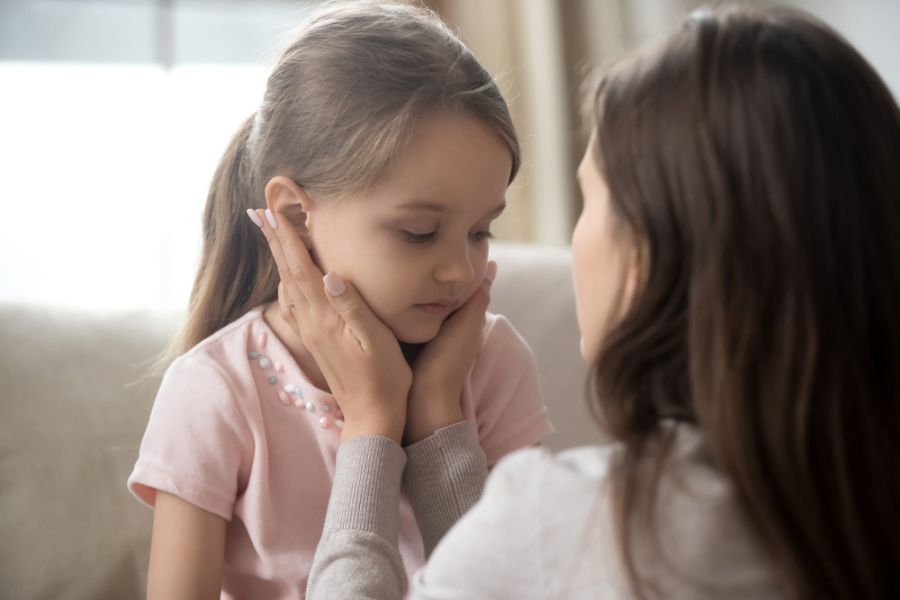
Source: shutterstock.com / Photo Contributor: fizkes
How to Prevent Causing Divorce Trauma to Children
It is best to act with care and rationality to ensure that the divorce from your spouse will not cause long-term trauma to your child.
Child and Family Counseling
We need to add a section on counseling/mental health professionals for the children.
Divorce mediation
One of the best ways to prevent childhood trauma due to legal separation is by dealing with conflicts through divorce mediation rather than using a San Diego divorce lawyer or other lawyers throughout California. This method is proven to provide the partners with the necessary information on how disputes are resolved in a civil manner.
Once your children are able to see that both of their parents have put in the effort to avoid disagreements after divorce, they will be more open to accepting it. Working with a divorce mediator leads partners to resolve their issues on their own terms.
No need for competition
The worst thing you can do to your child during the divorce process is to compete with your spouse. Your child doesn’t need to choose either of you. Instead, let them know that both parents will be included in their lives regardless of the divorce.
Equally shared custody
If both spouses are responsible, caring parents, it is often best for the child to have a joint custody arrangement. This is also favored by California family law courts. Joint physical custody means the children spend approximately the same amount of time with both parents, while joint legal custody means you both have an equal say in decisions about your children’s welfare.
Avoid direct conflict
Your child witnessing your fights in the marriage causes enough trauma. You don’t need to get into a conflict with your ex-spouse after you two go through a divorce. This will only cause more pressure and tension for the children.
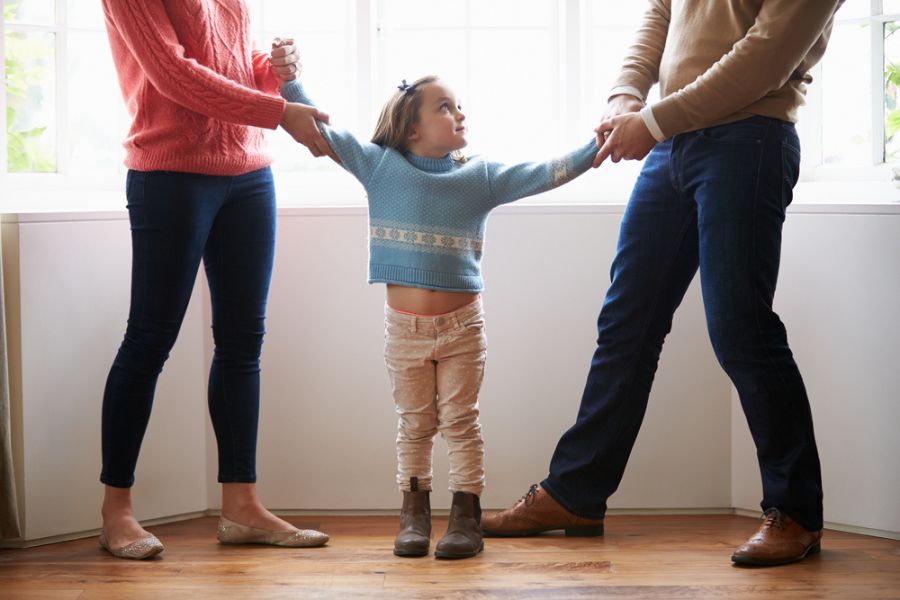
Source: shutterstock.com / Photo Contributor: Monkey Business Images
Final Words
Although negative psychological effects after parental divorce are not characteristic for every child, the chances of damaging their mental health are high. Another option that has less stress overall in the divorce process is working through your divorce through an online divorce service such as BlissDivorce. This type of process has no lawyers, no mediators, and no paperwork so tensions are lowered, allowing you to spend more time with your children and less on the complications of divorce.
Once a child witnesses their parents’ separation, they might start losing faith in the concept of happy marriage.
*This article is for informational purposes only and is not intended to provide legal advice. If you require legal advice, please contact a licensed attorney in your local area.

